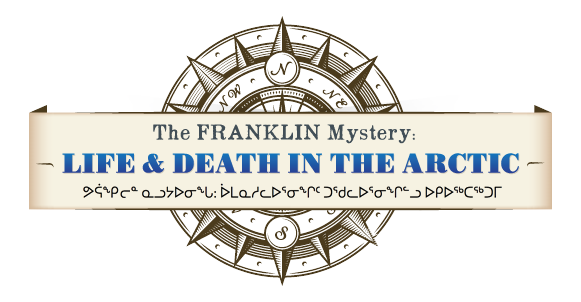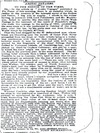Sir John Richardson to the Times (1855)
ARCTIC VOYAGES.
TO THE EDITOR OF THE TIMES.
Sir, - In the article on "Arctic Voyages" published in The Times of this morning, there is an omission which, in justice to the memory of the intrepid crews of the Erebus and Terror, I beg you to supply. I allude to the writer having, in common with Lord Palmerston and Mr. Mackinnon, failed to ascribe the discovery of the North-West Passage to the remnant of the crews of Franklin's ships, who made the passage in the spring of 1850, precisely in the same since it was performed in October of the same year, over the ice, by the party sent out from Prince of Wales' Strait by Captain M'Clure.
That the boat dragged by the 40 determined men whose bones are blanching near the mouth of Great Fish River proceeded from the ships or their wrecks lying in a waterway continuous with the sea that washes the continent, however much it may be encumbered with drift ice, is proved by the fragments of the ships' fittings that had drifted to Finlayson Islands, off Cambridge-bay, and were picked up there by Captain Collinson ; and also by a spar, to which the same origin can now be ascribed, found by Dr. Rae the previous year in the same channel. The following brief extracts from a letter addressed by Sir John Franklin to me in January, 1845, tend to show that he purposely sought an entrance into the line of water that washes the shores of the main land :- "There are only two ways which afford the prospect of success in ships – that between Cape Walker, the western part of North Somerset, and Bank's-land, and the other by Wellington Channel. .. You will, of course, agree with me in stating that I consider the water communication along the coast of America to have been already proved by our expeditions and those of Dease and Simpson. ... But how a ship is to be got near the coast, where I suspect navigable water will be principally found, is the question. ... I cannot as yet relinquish my impression that the vicinity of land is favourable for the opening of the ice ; and hence I am desirous of striving to get the ships near the coast, where we know lanes, if not a considerable extent of water, are to be found." ...
Whether Franklin, after leaving Beechey Island, carried his ships to the eastward or westward of Cape Walker will perhaps be ascertained by Mr. Anderson, who is now, I trust, descending the Great Fish River to collect written documents and other relics of the ill-fated ships ; but I think that no dispassionate reasoner can doubt that the priority of discovery rests with the Erebus and Terror, the Investigator being at least six months later. But the praise due to the dauntless resolution and skill by which a ship was navigated almost within sight of Parry's farthest advance from the east is due to Captain M'Clure, and, as his brave predecessors are beyond the rewards which the country is ever ready to bestow, the national gratitude cannot be more worthily shown than in granting the proposed reward to him and to the crew that so ably supported him.
Captain Collinson is entitled to rank as a "third" discoverer of a north-west passage, having performed a similar exploit to M'Clure's by a more southern channel and as a later date ; but he was fortunately able to extricate his ship, and was not therefore under the necessity of saving his men by travelling over the ice.
I have the honour to be, Sir, your obedient servant.
JOHN RICHARDSON
Lanerigg, Grasmere, June 21.



